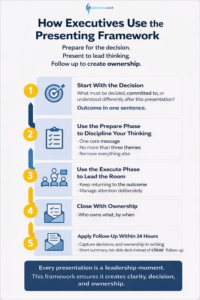De coaching in kritiek vinden: feedback omzetten in een groeivoordeel

Feedback. Het woord alleen al kan zelfs doorgewinterde managers doen terugdeinzen.
Als manager en leidinggevende heb ik dit verschillende keren meegemaakt en elke keer kostte het tijd en moeite om het geleerde te realiseren.
Als coach en facilitator heb ik het zien gebeuren in de directiekamer en in logistieke en fabriekskantoren, die gespannen pauze, de ingehouden adem, het interne “daar gaan we weer”. En toch, na tientallen jaren in leiderschap en coaching, heb ik geleerd dat ons vermogen om feedback goed te ontvangen vaak een sterkere voorspeller is van groei en succes dan ons vermogen om feedback te geven.
Veel organisaties besteden tijd aan het leren van leiders hoe ze effectief feedback kunnen geven - hoe de boodschap te structureren, de juiste toon te kiezen en de klap te verzachten. Ik heb deze trainingen vroeger ook gegeven, maar heb sindsdien een aantal zeer waardevolle lessen geleerd.
De echte magie gebeurt wanneer we de focus verleggen van de gever naar de ontvanger. Want uiteindelijk beslist de ontvanger wat hij binnenlaat, waar hij van leert en wat hij vervolgens doet.
Laten we dus eerst verschuiven naar het ontvangen van feedback, zodat we kunnen nadenken over hoe we de manier waarop we feedback geven kunnen verbeteren. Omdat we de ontvangende kant beter begrijpen en ervoor zorgen dat de effecten van onze feedbackintenties op de best mogelijke manier worden ontvangen.
Waarom feedback zo moeilijk is
Sheila Heen en Douglas Stone van de Harvard Law School beschrijven dit prachtig in hun klassieke artikel in Harvard Business Review “Find the Coaching in Criticism”.”
Ze leggen uit dat het ontvangen van feedback een diep innerlijk conflict veroorzaakt tussen twee fundamentele menselijke behoeften:
- de behoefte om te leren en te groeien, en
- de behoefte om geaccepteerd te worden zoals we zijn.
In de loop der jaren heb ik de drie veelvoorkomende “feedbacktriggers” herkend die in het artikel worden gepresenteerd en die voorkomen bij zowel leiders als teams die ik coach - en die ik zelf ook meer dan eens heb gevoeld. Daarom kan zelfs een goedbedoelde opmerking steken. Het daagt niet alleen uit wat we doen, maar vaak ook wie we denken te zijn.
- Waarheidstriggers - De inhoud voelt oneerlijk, onwaar of gewoon verkeerd aan.
- Relatie Triggers - De persoon die het zegt roept weerstand op: “Wie ben jij om dit te zeggen?”
- Identiteitstriggers - De feedback schokt ons zelfbeeld of zelfvertrouwen.
Wanneer deze triggers geactiveerd worden, stoppen we met luisteren. We verdedigen, rechtvaardigen of trekken ons terug. En op dat moment verdwijnt de kans om te leren.
Verschuiving van verdediging naar ontdekking
Hier is de paradox: de momenten die ons het meest ongemakkelijk maken bevatten vaak de rijkste inzichten. Maar alleen als we bereid zijn lang genoeg nieuwsgierig te blijven om ze te ontdekken.
In mijn coachingwerk met leidinggevenden en teams help ik mensen deze “feedbackspier” op te bouwen. Het gaat er niet om te doen alsof kritiek geen pijn doet. Het gaat erom te leren werken met dat ongemak - om te pauzeren, adem te halen en door te vragen:
“Wat zou hier waar kunnen zijn? Wat zou ik kunnen leren, zelfs als ik het niet met alles eens ben?”
Feedback wordt krachtig als we het niet langer behandelen als een oordeel, maar als gegevens - informatie die ons helpt om betere beslissingen te nemen over hoe we voor de dag komen en leiding geven.
Zes gewoontes die veranderen hoe je feedback ontvangt
Op basis van het onderzoek van Heen en Stone en wat ik in de praktijk heb gezien, zijn hier zes stappen die leiders helpen om feedback om te zetten in echte groei:
- Ken je neigingen.
Merk op hoe je meestal reageert. Leg je het uit, buig je af of sluit je je af? Bewustwording is de eerste stap naar een keuze. - Scheid de boodschap van de boodschapper.
Zelfs moeilijke of slecht gegeven feedback kan iets nuttigs bevatten. Wijs het bericht niet af vanwege de persoon. - Richt je op coaching, niet op evaluatie.
Probeer feedback te zien als coaching in plaats van als oordeel. “Wat kan ik verbeteren?” is een betere lens dan “Hoe heb ik gescoord?”.” - Pak uit wat er wordt bedoeld.
Stel verhelderende vragen. “Kun je een voorbeeld geven?” of “Hoe zou succes er de volgende keer uitzien?”.” - Vraag één ding.
Maak feedback onderdeel van je leiderschapsritme. In plaats van te vragen “Heb je feedback voor me?” vraag je “Wat is één ding dat ik beter kan doen in onze volgende vergadering?”. Het is specifiek, veilig en praktisch. - Experimenteer klein.
Pas je stijl niet van de ene op de andere dag aan. Test een kleine verandering en kijk wat er gebeurt. Feedback is geen theorie - het is een experiment in real time.
Van bedreiging naar vertrouwen
Als leiders laten zien dat ze nieuwsgierig zijn naar feedback, verandert er iets in de cultuur. Teams voelen zich veiliger om zich uit te spreken, de samenwerking verbetert en leren wordt onderdeel van het dagelijks werk in plaats van iets dat eens per jaar gebeurt tijdens functioneringsgesprekken.
Ik heb organisaties zien transformeren wanneer leiders deze mentaliteitsverandering doorvoerden. In één geval begon een senior operations manager haar wekelijkse vergaderingen af te sluiten met één vraag:
“Wat is één ding dat ik anders zou kunnen doen om je werk volgende week makkelijker te maken?”
Eerst aarzelde haar team. Maar toen ze zagen dat ze luisterde - en niet verdedigde - groeide het vertrouwen. Binnen een paar maanden was niet alleen de betrokkenheid van het team verbeterd, maar was ook hun probleemoplossend vermogen toegenomen. De manager zag feedback niet langer als een bedreiging, maar als een verkapte vorm van coaching.
Coaching reflectie
Als je dit leest als leider, vraag jezelf dan af:
- Welk type trigger beïnvloedt mij het meest - waarheid, relatie of identiteit?
- Welke feedback heb ik genegeerd omdat ik de manier waarop het werd gegeven niet leuk vond?
- Hoe kan ik deze week één klein stukje eerlijke feedback uitlokken?
Onthoud: feedback is geen oordeel. Het gaat over leren. En als we leren om de coaching te vinden in kritiek, groeien we niet alleen als leiders - we helpen iedereen om ons heen ook groeien.
Wil je onderzoeken hoe je in jouw team of organisatie een feedback-ready cultuur kunt opbouwen?
Laten we eens praten over hoe coaching en leiderschapsontwikkeling uw leiders kunnen helpen om feedback om te zetten in een voordeel - voor henzelf en voor hun teams.
👉 Contact om het gesprek te beginnen.
SEO Trefwoorden
leiderschapsfeedback, coaching bij kritiek, feedback ontvangen, feedbacktriggers, leiderschapsgroei, executive coaching, leercultuur, psychologische veiligheid, VUCA-leiderschap
Wil je dat ik een 1080×1080 afbeelding maak (voor LinkedIn en je website) om deze post te illustreren - bijvoorbeeld een visual met “Kritiek → Coaching → Groei”?




